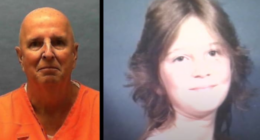Share this @internewscast.com
In May 2013, Katalin Karikó turned up for work at her laboratory at the University of Pennsylvania and found her belongings piled in the hallway. “There were my binders, my posters, my boxes of test tubes,” she recalls. Nearby a lab technician was shoving things into a trash bin. “My things!” Karikó realised.
Despite having worked at the tiny lab for years, the scientist – then in her 50s – was cast out, without notice, for failing to bring in “sufficient dollars per net square footage”. In short, she had not attracted enough grants to justify the meagre space she occupied.
“That lab is going to be a museum one day,” Karikó hissed at the manager who had ousted her. These were odd but prophetic words, as is made clear in this engrossing, touching tale of the tribulations of a scientist now recognised as one of the world’s greatest biochemists, a woman who helped create the vaccines that saved millions during the Covid-19 pandemic.
Karikó comes from a humble background in central Hungary, growing up in a single-roomed house that was heated in winter by a solitary stove and had no running water. Her father had to work as a labourer when he was dismissed from his job as a master butcher after falling foul of local Communist party officials.
It was a harsh life but a loving one, as Breaking Through reveals. Her family was close-knit and the state at least encouraged education. And Karikó was a worker. “I don’t consider myself especially smart, but what I lacked in natural ability, I could make up for in effort,” she says.
She took summer science classes, became a biology student at Szeged University and eventually obtained a PhD there. Aged 22, she fell in love with Béla Francia, a trainee mechanic five years her junior. They married, and in 1982 Karikó gave birth to their daughter, Susan. Two years later they moved to the US with their entire savings – about £900 – that were sewn inside Susan’s teddy bear to avoid Hungary’s currency restrictions.
By this time, Karikó had become obsessed with messenger RNA (mRNA), the material responsible for translating our DNA into proteins, the molecules from which we are constructed. Crucially, mRNA is extremely difficult to work with because it is fragile and short-lived. But Karikó was convinced it could play a major role in medicine and constantly fought for it to be a research focus. Few colleagues agreed, dubbing her “the crazy mRNA lady”.
Such epithets were a minor headache, however. At Temple University, in Philadelphia, where she began her work in the US, her chief, Robert Suhadolnik – after initially being supportive – tried to have her deported because she had had the temerity to seek a post at another university.
Eventually she moved to the University of Pennsylvania. Again, things went well at first, but as she maintained her mRNA obsession, the university began criticising her failure to attract grants. She was demoted, refused tenure, had her pay cut and finally found her possessions dumped in a hallway.
Fortunately for Karikó – and the rest of the world – her obsession with mRNA was now shared by several other scientists and she was snapped up by the German company BioNTech to begin work on mRNA medicines.
The rest is scientific history. When Covid-19 struck, BioNTech and Karikó realised they were in a prime position to tackle the pandemic, and with the backing of the pharmaceutical giant Pfizer, developed a vaccine that played a key role in helping to protect the planet against the worst vicissitudes of coronavirus.
How this success affected Karikó is explained in one of the most moving moments in Breaking Through. She returned to Penn to be given one of the first Covid shots to be administered in the US. Karikó was spotted in the crowd and she was hailed, as a vaccine inventor, with roars of approval. “My eyes grew misty,” she recalls.
This is a vividly written, absorbing memoir of a life filled with triumphs (including her daughter Susan’s own successes as an Olympic gold medal-winning rower) over near-constant adversity. The precise reasons for the continual undermining of her research and academic prestige are left open, though Breaking Through hints that science today suffers because it requires its practitioners to publish papers in numbers rather than merit and to seek grants for safe research, as opposed to risky but potentially groundbreaking work. Quantity not quality has become a career driver.
Ironically, the last laugh for Karikó is missing from Breaking Through. Along with Drew Weissman, she won the Nobel prize for physiology in October 2023 – too late for inclusion in her book. What those who thwarted her research must think about this final success can only be guessed. One thing is clear, however. Her old laboratory may not yet be a museum, but it surely will be one day.











